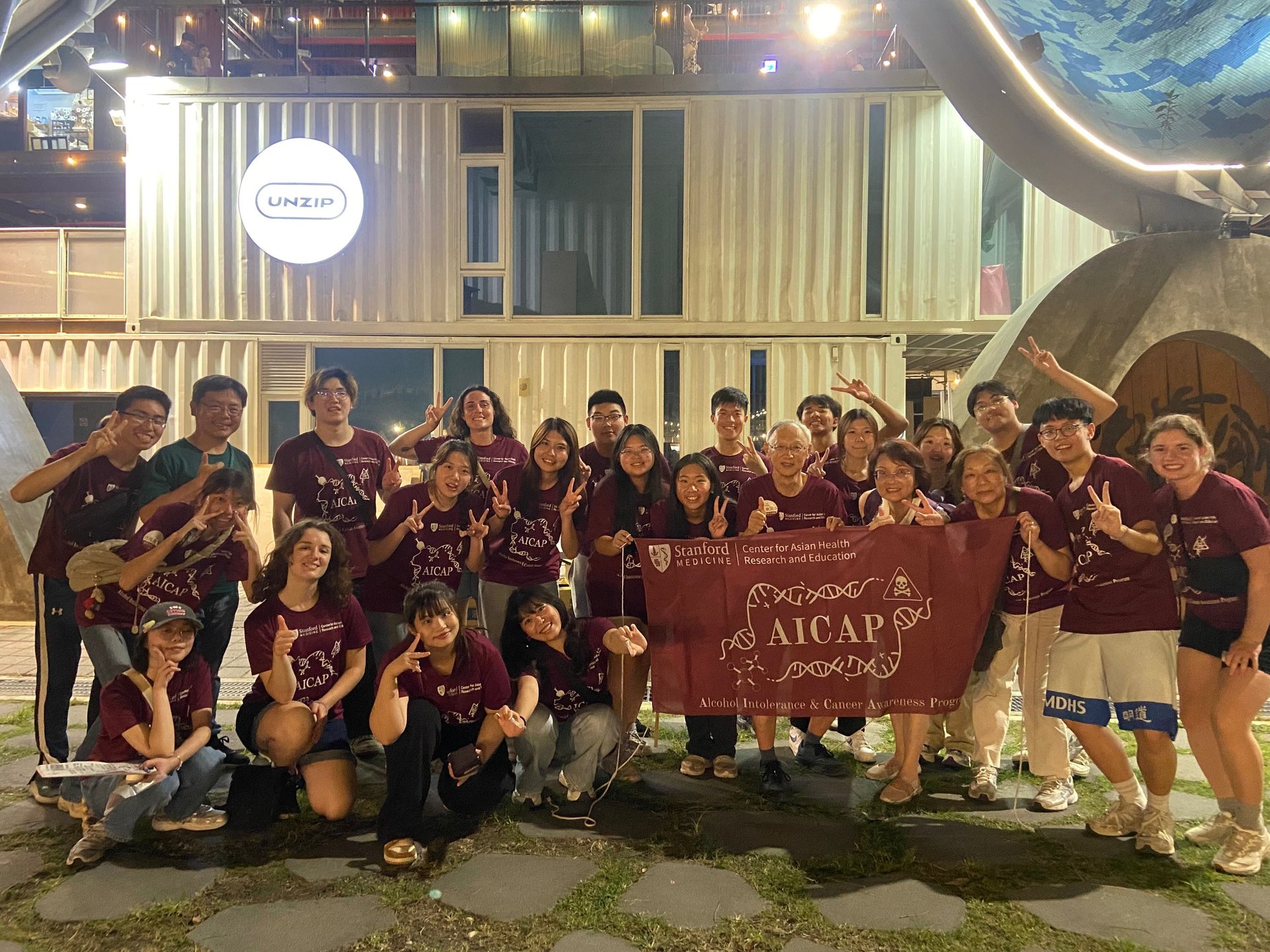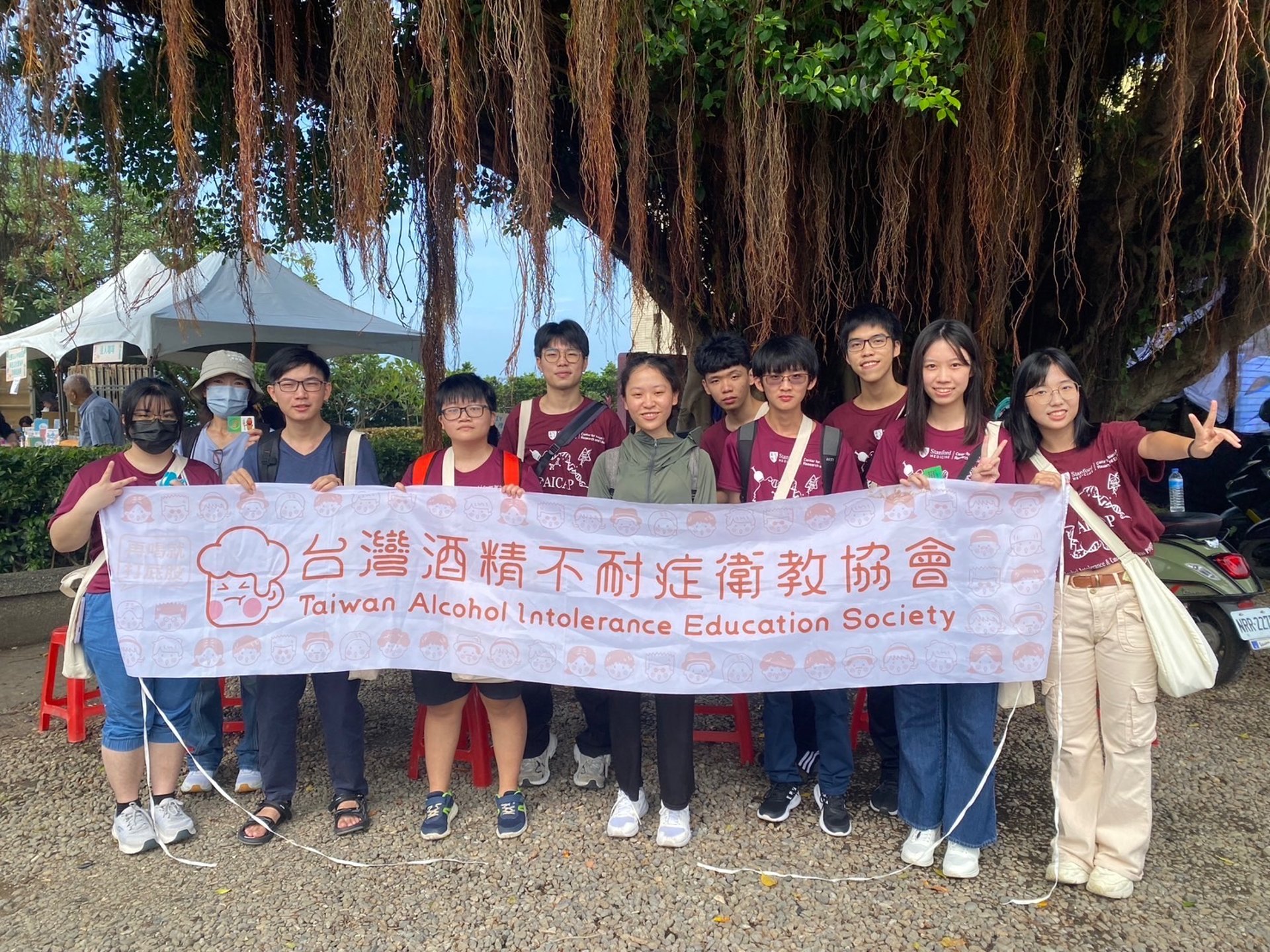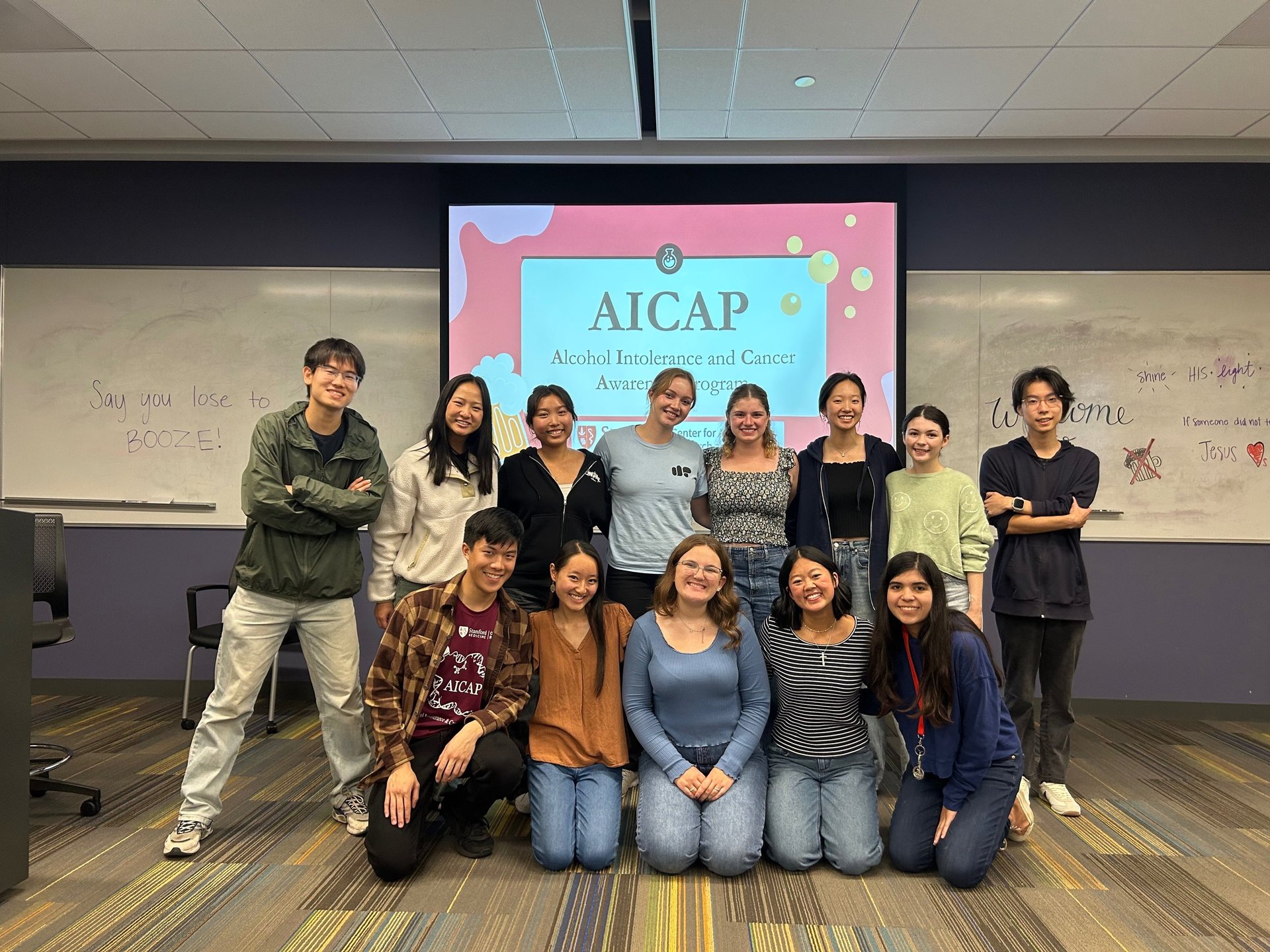
Raising awareness about alcohol intolerance and associated cancer risks in the Asian community
Alcohol Intolerance and Cancer Awareness Program
Empowering Awareness for Healthier Communities
AICAP is proud to be a part of Stanford Medicine's Center for Asian Health Research and Education.
We are powered by a group of faculty, students, and community volunteers, dedicated to raising awareness of alcohol intolerance and associated higher cancer risks in Asians.
Empowering informed choices for a healthier and safer community.


What are we up to lately ?
Our in-country partner, Taiwan Alcohol Intolerance Education Society (TAIES), has established May 9th as National No Alcohol Day.
This year, TAIES will have 20+ hospitals and medical organizations throughout Taiwan participate in the annual flagship event on
May 9th.
Volunteers and friends of TAIES will hold community outreach events to bring awareness to the general public about the alcohol intolerance and associated higher cancer risks.
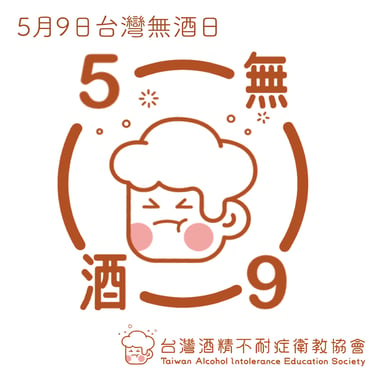



The Science: Alcohol Intolerance occurs when the body lacks the ALDH2 emzyme.
ALDH2 deficiency is a mutation in the ALDH2 gene that affects the body’s ability to break down acetaldehyde, a Group 1 carcinogen byproduct of alcohol metabolism. This leads to symptoms such as facial flushing, nausea, and increased cancer risk.
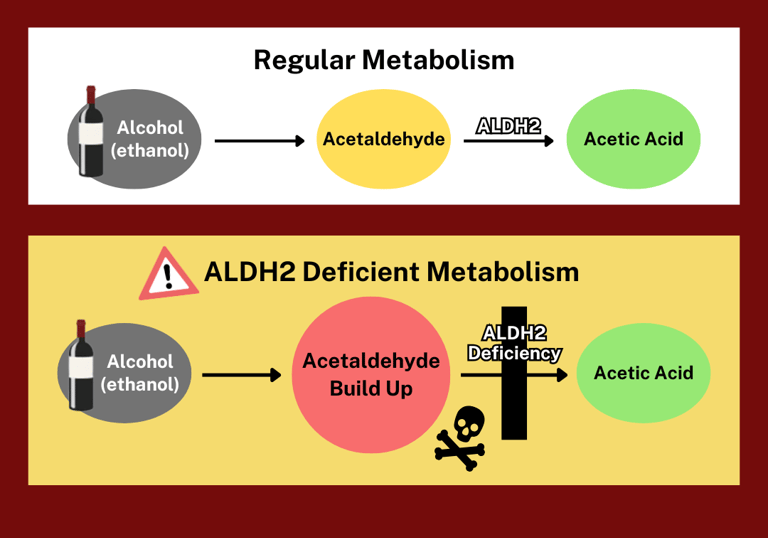

Approximately 40% of East Asian carry this genetic mutation, but many are unaware of its serious health consequences.
ALDH2 is the most common enzyme deficiency in the world, affecting 600 million (8% of the population)


ALDH2 deficiency disproportionately effects East Asians:
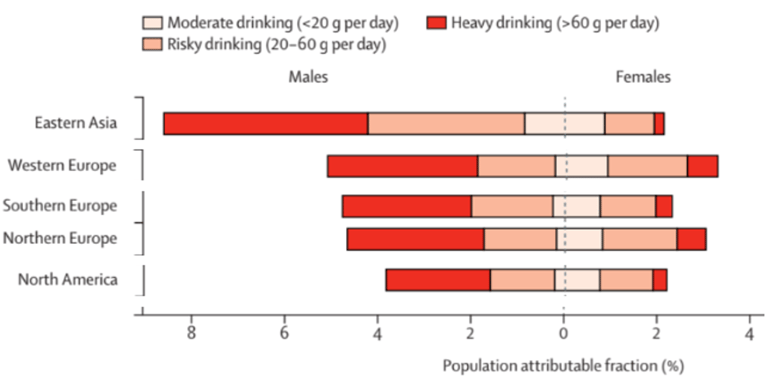

% of country’s population with ALDH2 deficiency
Studies show that individuals with ALDH2 deficiency have at least 40 times higher risk of developing digestive tract cancer and breast cancer.
Why?
Due to the ALDH2 deficiency, acetaldehyde accumulates in the body, damaging DNA and leading to mutations that can cause cancer.
Even small amounts of alcohol can lead to dangerous buildup of acetaldehyde.
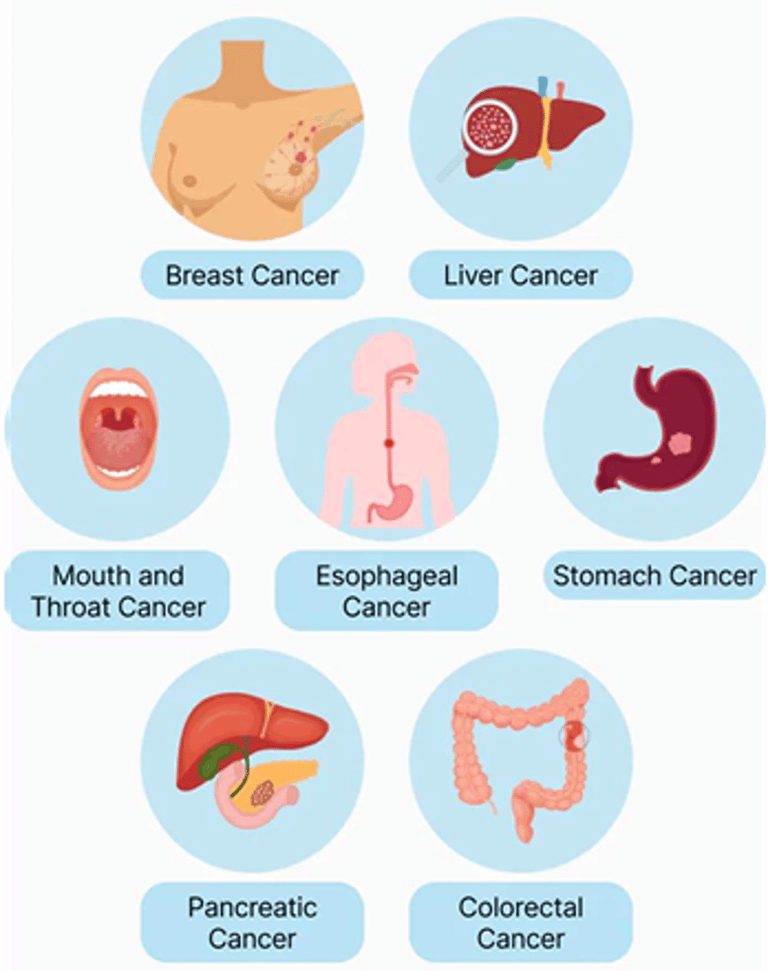

7 types of common cancers caused by alcohol:
Many people dismiss facial flushing after drinking as a harmless reaction, but it’s actually a warning sign of ALDH2 deficiency.
Common Misconceptions:
Myth: "It's just an Asian glow."
Truth: Facial flush is a sign of toxic acetaldehyde buildup. The body is sending warning signals!
Myth: "Drinking more will build tolerance."
Truth: Drinking increases cancer risk, not tolerance.
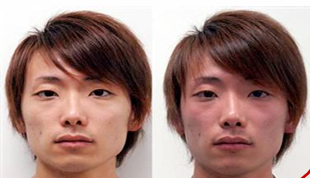

ALDH2 deficiency is a serious but under-recognized health issue. Your support can make a difference.
Ways to Get Involved:
Every action counts.
Help us raise awareness and
fight cancer before it starts!
Share this website to spread awareness
Volunteer to help with outreach events
Donate to support our
cause!



